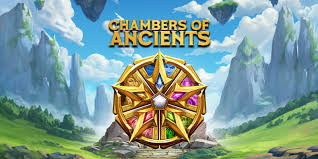
Chambers of Ancients Slots
The spiritual beliefs and rituals of ancient civilizations offer a glimpse into their worldviews and values. Religion played a central role in shaping societies, influencing everything from governance to daily life.
The Divine Pantheon: Gods and Goddesses Chambers of Ancients Slots
Most ancient cultures possessed a diverse pantheon of gods and goddesses, each representing different aspects of life and nature. The Egyptians, for instance, revered deities like Ra, the sun god, and Osiris, the god of the afterlife Nhà cái 8kbet.
These divine figures often personified natural elements, embodying the unpredictability of life. Worshipping these gods served as a way for people to seek favor and protection, cultivating a sense of community through shared beliefs.
Rituals dedicated to these deities varied widely, from grand festivals celebrating harvests to solemn ceremonies honoring the dead. Such practices reinforced social cohesion and provided a means for individuals to connect with the divine.
Ancestor Worship: Honoring the Past
Many ancient cultures practiced ancestor worship, reflecting a belief in the continuity between the living and the dead. In societies such as those in China and Africa, honoring ancestors through elaborate rituals was commonplace.
These rituals often involved offerings, prayers, and festivities to ensure that the spirits of deceased relatives remained benevolent and protective. This practice fostered a sense of belonging and continuity within families, emphasizing the importance of lineage and heritage.
By engaging with their ancestors, individuals drew strength and guidance from their forebears, creating a bridge between generations that enriched their cultural identity.
Sacred Texts: The Written Word as Spiritual Guidance
Sacred texts have served as repositories of knowledge, ethics, and spirituality throughout ancient history. The Vedas of India, the Torah of Judaism, and the Quran of Islam all encapsulate the teachings and beliefs of their respective cultures.
These texts often contain moral lessons, guidelines for righteous living, and reflections on the divine. They shaped the ethical frameworks of societies, influencing laws, customs, and personal conduct.
The preservation and transmission of sacred texts highlight the importance of literacy and education in ancient civilizations. As guardians of knowledge, scribes and scholars played a pivotal role in maintaining cultural continuity and fostering intellectual inquiry.
Festivals and Celebrations: Community and Unity
Ancient festivals served as communal gatherings that celebrated the changing seasons, agricultural cycles, and important religious events. These occasions fostered unity and strengthened social bonds among participants.
Festivals often featured elaborate rituals, music, dance, and feasting, creating an atmosphere of joy and celebration. They provided an opportunity for communities to reflect on their shared history and express gratitude to the gods Chambers of Ancients Slots.
Through these collective experiences, individuals felt a sense of belonging and connectedness, reinforcing the idea that ritual and community are fundamental aspects of human existence.



